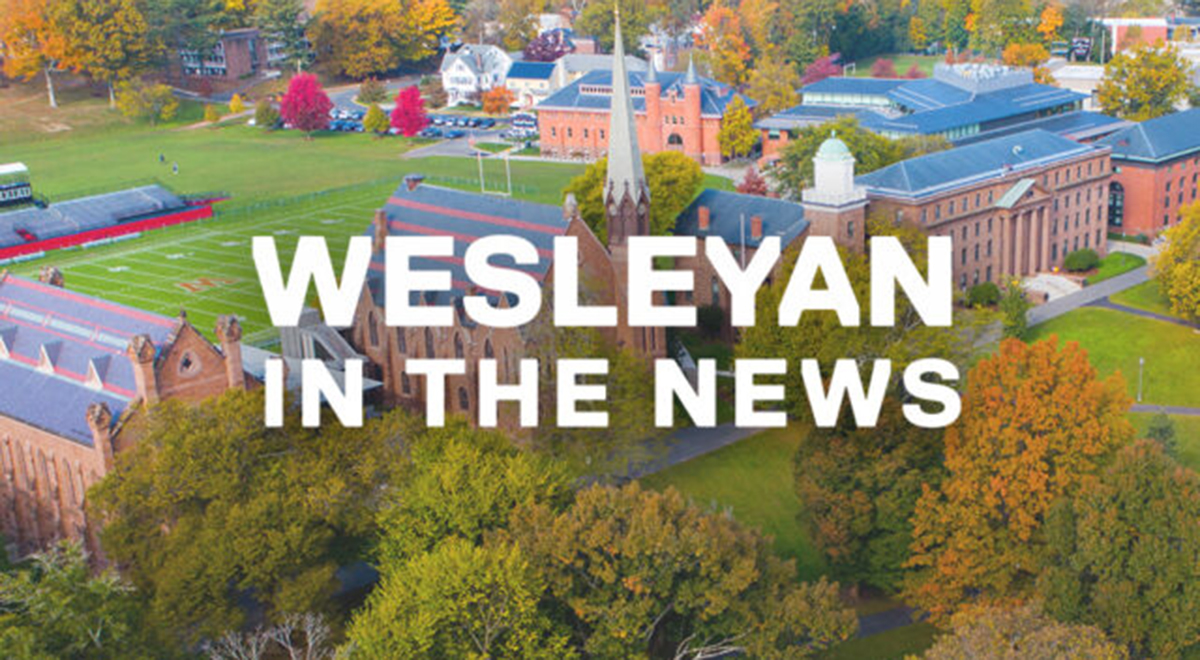Wesleyan in the News: August 2024
The Wall Street Journal published a piece on the pressure faced by college administrators for the upcoming academic year after widespread student protests last year. President Michael S. Roth ’78 said the situation poses an opportunity for students to be actively engaged in politics. Wesleyan offers students political engagement grants through the Jewett Center for Community Partnerships to make it easier for them to be involved in political campaigns and other civic engagement opportunities.
“The real issue is, how are we going to govern ourselves in the next four years? And students can play a big role in that,” Roth said, according to the Wall Street Journal. “I’d rather them do that than to turn back just to their books or to their internships or their tests.”
Roth also spoke to USA TODAY for a piece on how administrators can handle campus protest. “If you have a space of expression and not intimidation, it should be encouraged,” he said. “If it veers into a space of intimidation or harassment… it’s the responsibility of the university to shut it down.”
Professor of Government and Wesleyan Media Project (WMP) Co-Director Erika Franklin Fowler joined WNPR’s “Where We Live” on Aug. 26 to talk about political advertising this election cycle and how it impacts what voters do on election day.
Franklin Fowler presented at the National Democratic Institute’s International Leaders Forum, which ran during the same week as the Democratic National Convention in Chicago in August.
The Hill highlighted recent WMP research that found that Americans are seeing more television advertisements promoting former President Donald Trump than those supporting Democratic Party nominee Vice President Kamala Harris. “The shakeup in the presidential contest has given both parties new incentives to advertise, as Vice President Harris is not as well-known as former President Trump or President [Joe] Biden,” said Travis Ridout, co-director of the Wesleyan Media Project.
Ridout spoke with the Washington Post for its “Tech Brief” newsletter about the platform X (formerly known as Twitter) promoting advertisements from the Trump campaign, which sparked conversation online about the state of ad transparency since regulations for online ads are not as stringent as they are for television ads.
He also talked to The Atlantic about the utility of social media advertisements for political campaigns in comparison to television ads. “Campaigns are questioning the value of social media ads,” Ridout said.
He also offered his expertise to TIME for a story on the Harris campaign’s decision to bring on Minnesota Gov. Tim Walz as her running mate. “The vice presidential nominees often take on the role of attack dog, and the danger there is they end up looking nasty, but if you can do it with a smile and a wink and with some humor, you can convey that message without it necessarily backfiring on you,” Ridout said.
Dean of Social Sciences and Professor of Religion Mary-Jane Rubenstein warned against countries extracting resources from the moon and called for updated international policy on caring for planets in The Conversation. Rubenstein later spoke with POLITICO about her piece. “Relentless extraction of materials in order to claim land, maximize production and maximize profit has a disastrous local effect,” she said.
Author and Professor Cynthia Arnson ’76 wrote about strain in the relationship between the United States and Colombia under the regime of Colombian President Gustavo Petro for Americas Quarterly. Arnson also appeared on CNN Chile Aug. 21 for a spot about the Democratic National Convention.
Amanda Sonnenschein ’14 will direct Electric, I at the Theatre of NOTE, running from Sept. 26 to Oct. 20, according to BroadwayWorld.
Isadora Goldman Leviton ’26 wrote a piece on the working conditions of teachers in Connecticut towns for a piece in CT Mirror. Goldman Leviton spent the summer interviewing teachers in West Hartford, Hartford, and the state CREC school districts for her senior thesis research.


